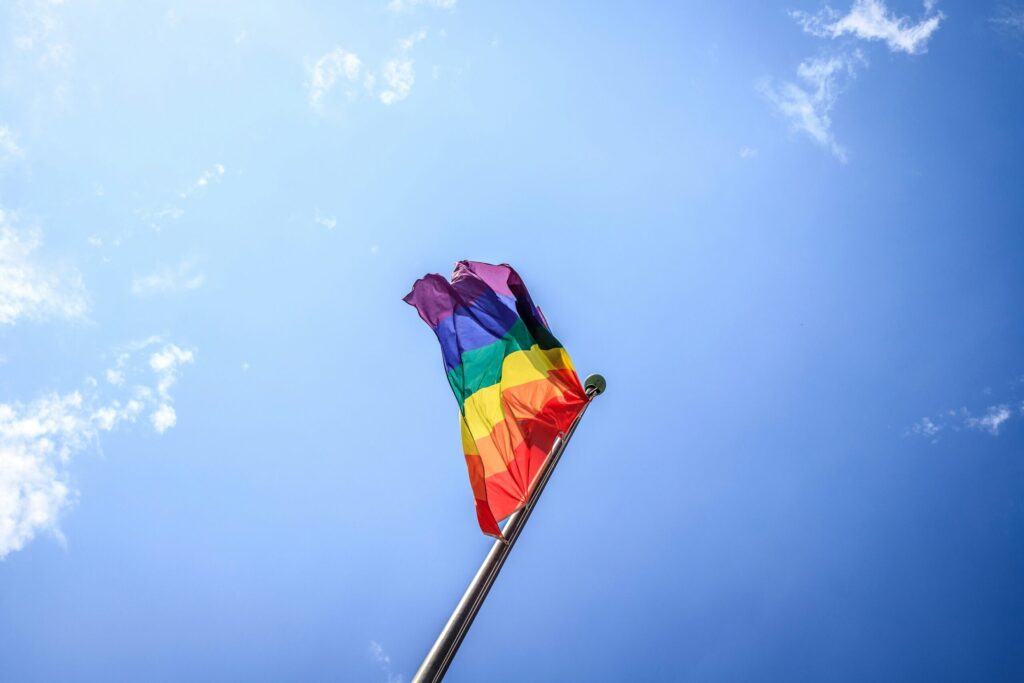A Strong Message Against Florida’s “Don’t Say Gay” Bill
During his acceptance speech for the Carol Burnett Award at the 2023 Golden Globe Awards, Ryan Murphy took the opportunity to deliver a powerful message in support of the LGBTQ community. The renowned TV producer, known for his groundbreaking work on shows like Glee and American Horror Story, used his platform to address the ongoing challenges faced by LGBTQ youth, particularly in states like Florida, where the controversial “Don’t Say Gay” bill and other anti-LGBTQ legislation have raised concerns nationwide.
Murphy’s words struck a chord as he began by reflecting on the hardships of being an LGBTQ person in America. “It’s hard being an LGBTQ kid in America,” he shared, before turning his attention to the recent political climate in Florida. “And I have one word for you, Florida,” Murphy said, condemning the harmful policies aimed at limiting the rights and visibility of LGBTQ individuals, especially the younger generation. His direct address to Florida underscored the gravity of the ongoing battle for LGBTQ rights and recognition, highlighting the urgency of supporting vulnerable communities in the face of such legislation.
Honoring LGBTQ Collaborators and Advocates
As he accepted the prestigious award, Murphy also took a moment to honor and celebrate the LGBTQ individuals who have been instrumental in his career. He expressed gratitude to Billy Porter, who had given a heartfelt introduction before his speech, and paid tribute to Michaela Jaé Rodriguez, the star of Pose. Rodriguez made history in 2021 by becoming the first trans woman to win a Golden Globe, and Murphy made sure to recognize her with the standing ovation she missed the previous year when the awards ceremony was off-air.
In addition, Murphy acknowledged the contributions of other talented LGBTQ actors like Niecy Nash-Betts, Matt Bomer, and Jeremy Pope. “You are often told you will have to hide your light to survive,” he said, offering these actors as examples of possibility for the next generation. Murphy’s commitment to amplifying underrepresented voices was clear in his words, as he reaffirmed the importance of visibility and representation in Hollywood.
A Personal Reflection on Representation in Hollywood
Murphy’s speech also delved into his personal experiences growing up and the lack of LGBTQ representation in media. Reflecting on his youth in the 1970s, he shared how watching The Carol Burnett Show made him feel invisible, as he never saw a character or person like himself being celebrated. “When I was a young person at home in the ’70s watching The Carol Burnett Show, I never ever saw a person like me getting an award or even being a character on a TV show,” he recalled.
This realization fueled Murphy’s career and his determination to change the narrative. “My mission was to take the invisible, the unloved, and make them the heroes I long to see but never did in pop culture,” he continued. His work has undoubtedly transformed the landscape of television, providing much-needed visibility for LGBTQ characters and stories.
Ryan Murphy’s Monumental Legacy in Hollywood
Ryan Murphy’s impact on the television industry is undeniable. Over the years, he has been nominated for 16 Golden Globe Awards, winning several, including Best Drama for Nip/Tuck in 2005 and Best Comedy/Musical Series for Glee in 2010 and 2011. His anthology series American Crime Story also won Best Limited Series for The People v. O.J. Simpson (2017) and The Assassination of Gianni Versace (2019).
Through his shows, Murphy has not only brought compelling stories to the screen but also created vital space for LGBTQ characters to thrive. His influence in Hollywood has reshaped how LGBTQ individuals are portrayed in mainstream media, highlighting the importance of authentic representation.
A Bold Call for Change and Advocacy
In his Golden Globe acceptance speech, Murphy emphasized that the fight for LGBTQ rights is ongoing, particularly in states where regressive laws like Florida’s “Don’t Say Gay” bill threaten the rights and visibility of LGBTQ individuals. His words resonated deeply with many in the audience, reflecting a collective call for progress and change. As Murphy continues to champion underrepresented voices and advocate for inclusivity, his work remains a powerful force for both Hollywood and society at large. His call for action at the Golden Globes was a defining moment, reinforcing the importance of continuing to fight for equality and justice for all.


